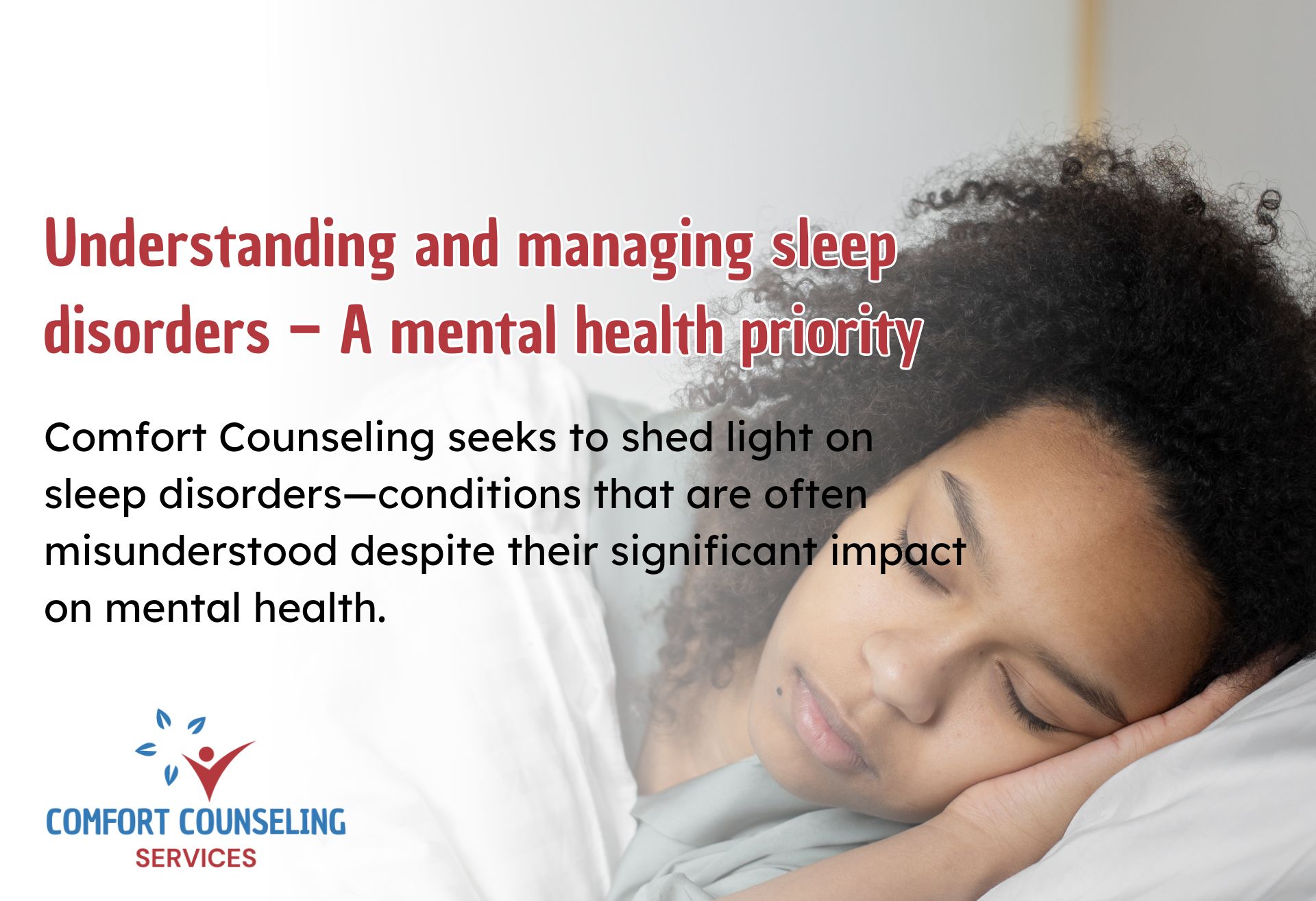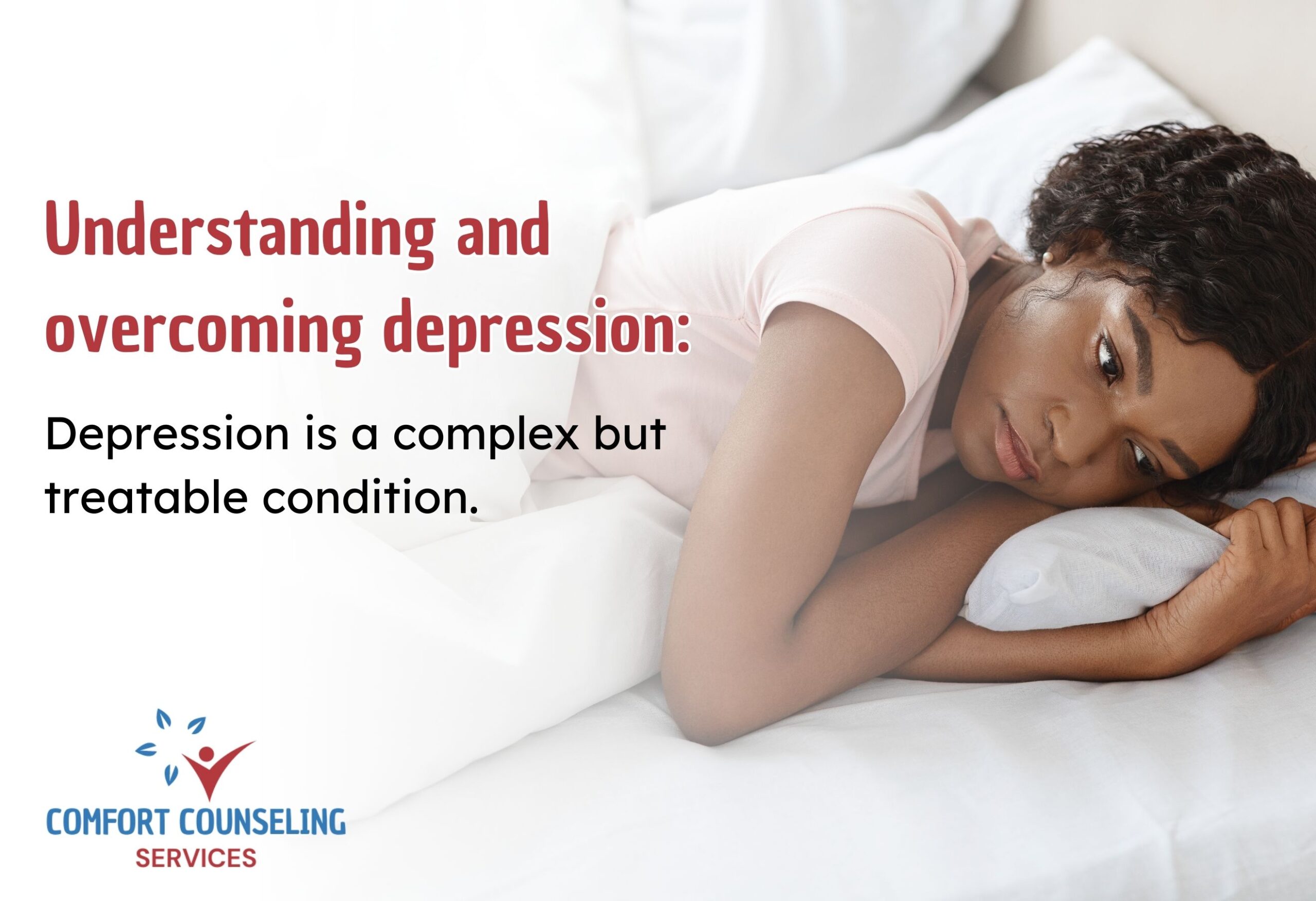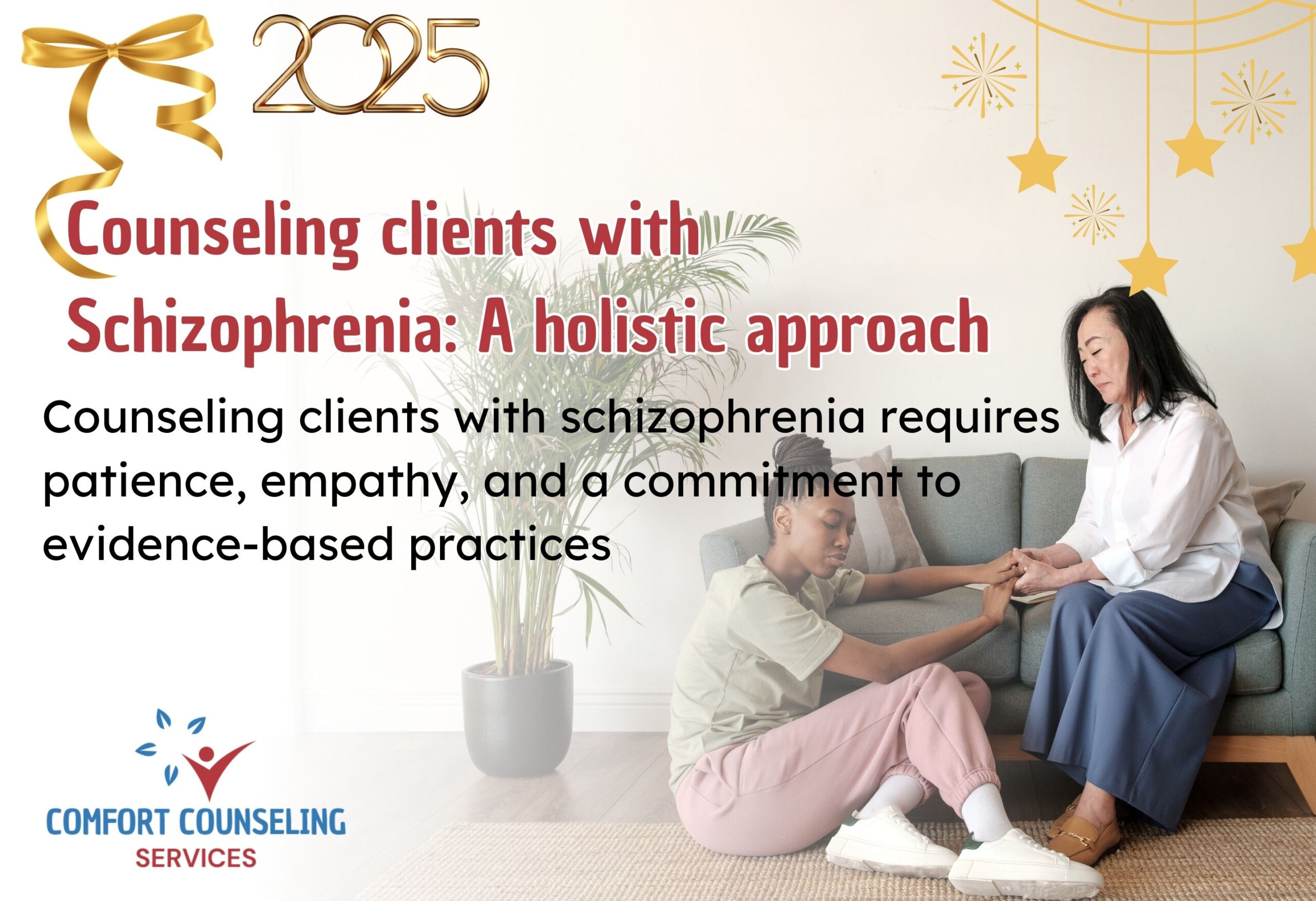Sleep is a cornerstone of mental and physical well-being. Yet, millions of people struggle with sleep disorders that impair their health, productivity and emotional balance. In observance of mental health awareness month, Comfort Counseling Services seeks to shed light on sleep disorders—conditions that are often misunderstood or minimized despite their significant impact on mental health.
What are sleep disorders?
Sleep disorders are conditions that disturb normal sleep patterns. According to the American Psychiatric Association (2022), common types include:
- Insomnia – difficulty falling or staying asleep.
- Sleep Apnea – disrupted breathing during sleep.
- Restless Legs Syndrome (RLS) – uncontrollable leg movements that hinder rest.
- Narcolepsy – sudden and uncontrollable episodes of daytime sleepiness.
These disorders may be primary or linked to other mental health issues like anxiety, depression, PTSD, or substance use disorders.
The link between sleep and mental health
The relationship between sleep and mental health is bidirectional. Poor sleep can trigger or worsen psychological conditions, while mental illnesses can interfere with quality sleep. Research published by Harvard Medical School (2021) shows that 65–90% of adults with major depression experience sleep problems. Similarly, chronic insomnia increases the risk of developing anxiety disorders.
Sleep disturbances alter brain function, particularly in areas responsible for emotion regulation, such as the amygdala and prefrontal cortex (Walker, 2017). Over time, this dysregulation contributes to irritability, poor concentration, memory issues, and mood swings.
Causes and risk factors
Sleep disorders can be caused by a range of factors, including:
- Stress and trauma – major life changes, grief, or abuse.
- Mental health conditions – anxiety, depression, bipolar disorder.
- Substance use – alcohol, caffeine, or stimulants.
- Medical conditions – chronic pain, asthma, or thyroid issues.
- Poor sleep hygiene – irregular schedules, excessive screen time, or environmental noise.
Understanding the root causes is essential for effective treatment and prevention.
Signs and symptoms to watch for:
If you or someone you know is experiencing the following, it may indicate a sleep disorder:
- Persistent difficulty falling or staying asleep.
- Loud snoring, choking or gasping during sleep.
- Daytime fatigue despite spending enough time in bed.
- Mood changes, irritability, or anxiety.
- Difficulty concentrating or remembering tasks.
Practical strategies for managing sleep disorders
Comfort Counseling Services recommends the following integrative approach to managing sleep disorders:
1. Practice good sleep hygiene
- Maintain a consistent sleep schedule.
- Create a quiet, dark, and cool sleeping environment.
- Limit screen time at least one hour before bed.
- Avoid caffeine, nicotine and heavy meals in the evening.
2. Cognitive Behavioural Therapy for Insomnia (CBT-I)
CBT-I is an evidence-based, short-term treatment that helps individuals change thoughts and behaviours contributing to insomnia (American Academy of Sleep Medicine, 2020). It is often more effective than medication.
3. Relaxation techniques
Deep breathing, progressive muscle relaxation and mindfulness meditation can calm the nervous system and prepare the body for rest. Apps such as Calm, Headspace, and Insight Timer are helpful tools.
4. Medical evaluation and treatment
For conditions like sleep apnea or RLS, a medical diagnosis and intervention—such as CPAP machines or medications—may be necessary. Referrals to sleep specialists can be arranged through Comfort Counseling Services.
5. Counseling and Psychotherapy
Addressing underlying mental health concerns like trauma, grief, or anxiety can significantly improve sleep quality. Therapeutic interventions such as trauma-focused CBT, EMDR, or solution-focused therapy can be helpful.
Supporting Loved Ones with Sleep Disorders
If someone you care about is struggling with sleep, your support can make a difference. Encourage them to seek professional help, avoid minimizing their experience, and create a supportive environment that fosters good sleep habits.
Resources and Support
Comfort Counseling Services offers counseling sessions for individuals facing sleep-related issues. We also provide referrals for medical evaluations and facilitate support groups that address anxiety, stress, and trauma—all of which are common contributors to sleep problems.
Helpful resources include:
- National Sleep Foundation
- Sleep Education by AASM
- Mental Health America – Sleep and Mental Health
Final Thoughts: By recognizing the signs and seeking professional help, individuals can reclaim restful sleep and overall wellness. During this mental health awareness month, Comfort Counseling Services invites you to prioritize sleep as a vital component of your self-care and mental health journey.
If you or a loved one is struggling with sleep-related issues, contact Comfort Counseling Services for confidential, compassionate support.



